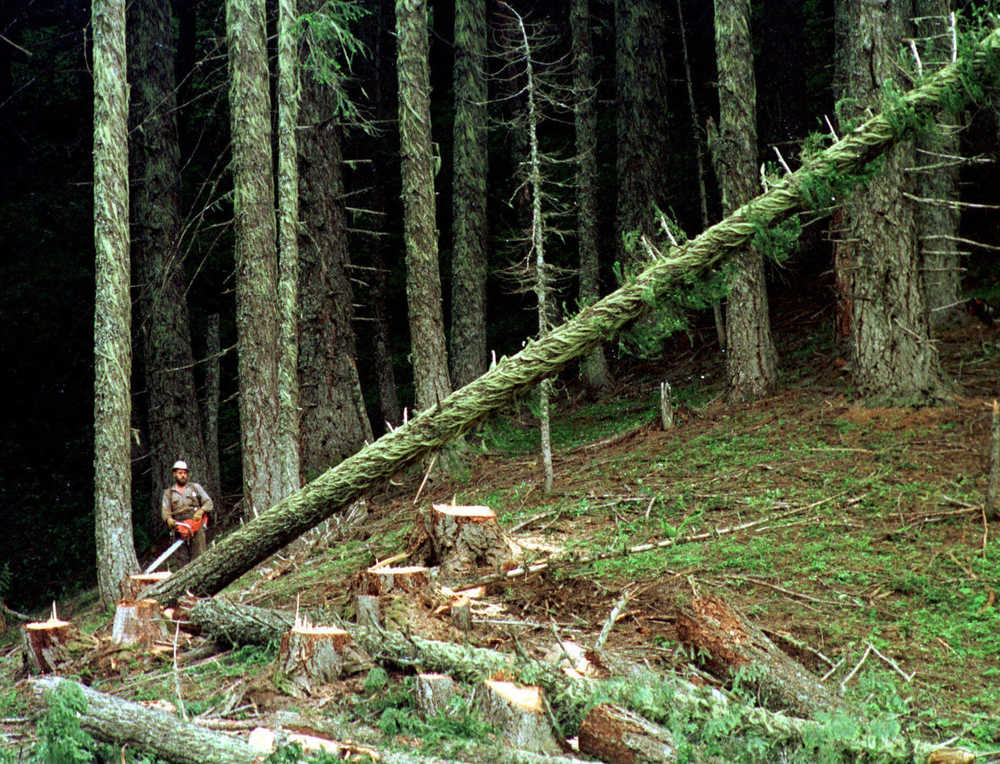SALT LAKE CITY — Conservatives who have long complained about the government’s control of vast Western lands hope they will have a new ally in Donald Trump, who has sent mixed signals about how he might manage land and whether he would relinquish federal authority over millions of acres.
The president-elect has pledged to honor Theodore Roosevelt’s tradition of conservation in the West, with its expansive deserts, snow-capped mountain ranges and red rock canyons. But he has also said he will “unleash” energy production there and has railed against “faceless, nameless bureaucrats” in land-management agencies.
Dozens of demands for land handovers have surfaced in Western state legislatures in recent years, and more are sure to be offered in Congress during the Trump administration.
“Those who are championing these issues certainly see this as a rare opportunity,” said Karla Jones, director of a task force for the American Legislative Exchange Council, a Washington-based organization that develops bills for conservative lawmakers.
On Tuesday, Trump offered the post of interior secretary, the nation’s top custodian of public lands, to Republican Rep. Ryan Zinke of Montana, who has not said whether he will accept. The retired Navy SEAL insists that he does not favor relinquishing federal control of the land, as Democrats allege.
Twelve Western states contain more than half of the nation’s 640 million acres of federal public lands. Those lands comprise more than 60 percent of Alaska, Idaho and Utah.
Resentment of government control has simmered across the West for decades, occasionally boiling over into showdowns such as the armed takeover of the Malheur National Wildlife Refuge headquarters in Oregon last winter.
Only a few extremists resort to such tactics. Yet the frustration is evident in countless protests, resolutions and bills demanding a greater say for local residents or seeking the sale of millions of acres to private buyers.
Many conservatives accuse federal managers of putting more value on endangered wildlife than on people and jobs. Trump’s election raises hopes for more oil and gas drilling, mining, grazing and timber harvesting.
How far the Trump administration will go is unclear. But those who have long dreamed of overthrowing a system they consider tantamount to colonialism say the time is now.
“The founding fathers, when they drafted the Constitution, never intended for the federal government to own land like this,” said Kirk Chandler, a rancher and county commissioner from Weiser, Idaho. “It’s supposed to be the people’s land.”
Environmentalists and their supporters in Congress are gearing up for a fight, saying strong federal regulation is needed to protect water and wildlife habitat.
“Any admin that tries to reverse 100-year history of #PublicLands that belong to every American is going to have to do it over my dead body,” Sen. Martin Heinrich tweeted after Trump’s election.
The Democrat from New Mexico later told The Associated Press that cash-strapped states would probably sell at least some lands to help cover fire suppression and other management costs. “No trespassing” signs would pop up in places where public access has been taken for granted, he said, raising the ire of outdoor sports enthusiasts.
“I think you will see a real populist uprising when you start taking away access to people’s local fishing hole,” Heinrich said.
Supporters of state or local control seethed as the Obama administration created or expanded more than two dozen national monuments that protected hundreds of millions of acres, imposed a moratorium on new coal production and canceled dozens of oil and gas leases.
Despite their shared preference for local control, activists do not have a single plan for accomplishing it. Much will depend on Trump, who told Field & Stream magazine in January that he opposed transferring federal lands to the states.
“I don’t like the idea because I want to keep the lands great, and you don’t know what the state is going to do,” Trump said. “I mean, are they going to sell if they get into a little bit of trouble?”
Yet he endorsed state control in a guest column for a Nevada newspaper, a position the Republican platform strongly backs. A transition team spokesman did not return email messages seeking comment.
Zinke, Trump’s choice for interior secretary, has walked a tightrope in Montana, where opinions about federal dominion are more divided than in some Western states.
During his re-election campaign, Democrats accused him of signing a pledge in 2012 declaring Montana’s lands as sovereign and not subject to federal control. He said he did not remember doing so and resigned as a GOP convention delegate over the platform’s stance. Yet he has criticized federal land management and voted for demonstration projects allowing states to manage portions of national forests.
Republican Rep. Diane Black of Tennessee plans to re-introduce a measure that failed this year authorizing states to administer energy leasing and permitting on federal lands. Another bill that could be offered again would allow the transfer of 2 million acres of national forests to the states. Rep. Mark Amodei, a Nevada Republican, has sought to reduce the portion of land under federal control in his state from more than 80 percent to about 75 percent.
Skeptics consider federal land transfer a fringe issue, and industry groups tend to avoid it. The National Mining Association has no formal position, focusing instead on specific battles such as a government proposal to ban mineral development on 10 million acres to protect the imperiled sage grouse.
Even a Trump administration and a GOP-controlled Congress probably will not bring any “radical” change in public land management, said Travis Joseph, president of the American Forest Resource Council.
Similar predictions arose when Bush was elected, he noted. The logging industry, he explained, is more concerned about shortages of money and agency personnel that prevent timber harvests allowed under existing federal policies.
“We accept reality,” Joseph said, “and are trying to make reality work as best we can.”
• Flesher reported from Boise, Idaho, and Traverse City, Michigan.

